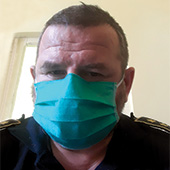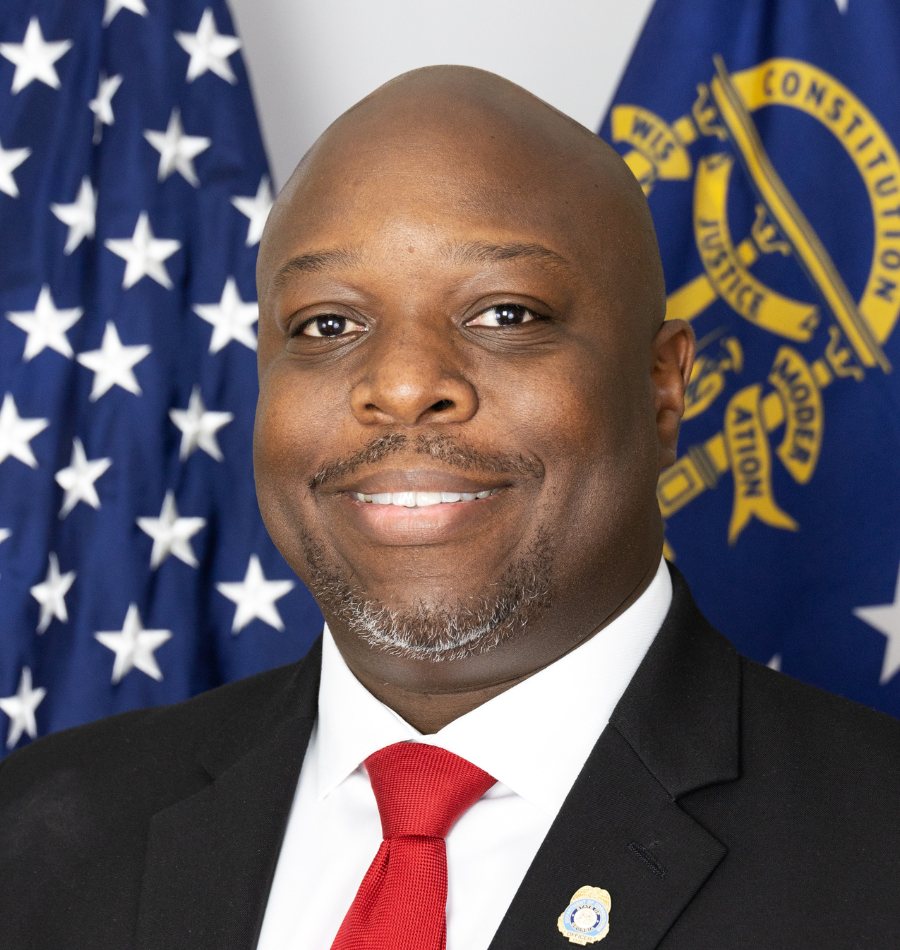When it hits you, it hits you hard and takes all your breath away.
You tell yourself that it won’t happen in the penitentiary establishment that you are running because you did everything in your power to prevent it and you were always among them.
You think that you have everything you need to fight it. Yet it hits you.
You may have to send home 40% of the active staff in a few hours. You have to learn fast what «contact», a rather generic word up until that moment, technically means in the terminology of the Medical County Service: “the person who was in the presence of the infected person for more than 15 minutes at less than 1.5m, and without means of protection”.
You suddenly become knowledgeable about matters that were not taught at the Academy, such as managing a prison in times of pandemic. You become aware that, in this crisis, people you thought were your rock have fears and panic attacks, that are normal to have in this situation.
You must tell them you still are relying on them.
Most importantly, you need to tell them that we live (more than half in our active life) work (at least for two decades) and suffer (as little as possible) TOGETHER!
And don’t forget the other actors in the play – the users of our services. Be careful not to let out what you saw happening in other prisons. That the spread of the infection within may let hell break loose.
I had experienced something similar 23 years ago in another prison—a methyl alcohol intoxication of detainees. Consequences were death, severe poisoning, ambulances that enter in the middle of the night to the ground floor of the prison. You keep repeating to yourself: this CAN’T HAPPEN HERE.
SPACING – INSULATION – TESTING
This has been the matrix I used, and it worked. Not being an epidemiologist myself, I was sceptical about the generalist messages regarding protection measures. However, when it happens under your supervision, you desperately cling to every message and recommendation, in the hope that it will help. Positively surprised, I found out that if you follow these rules, it helps.
Distance helps: Limiting the assembly in groups at the table, in the workspace, even at the presentation at work is a helping measure. When you turn the club into an office space or your colleagues or plan to serve the meals in a series of a maximum of 5 people, it helps.
Isolation helps – Sending 59 colleagues directly into isolation (45% of the total staff), may break you. You have the same mission or more, but you have 45% less staff. That is why you are happy and grateful when Medical County Service calls you and has isolation for only ten colleagues. You can breathe, and there is hope.
Testing helps – I immediately made the decision. It was tough to ask a man to be functional for 14 days in which he would be assessed on every cold or cough, or stuffy nose. It was hard trying to justify why test only ten colleagues (those isolated from Medical County Service) out of 150.
The decision we took of testing and see the results showed the pressure on your people change. I was satisfied with their peace. You feel safe to work in a clean environment and reassured of the fact that if you follow the rule things work. That is why, we decided to buy more 150 PCR tests. It is worth it; it helps the band’s morale to know that if they have a problem, there is hope.
___
In the Academy, I had a commander who had an expression: – “helmet – mask!” After a quarter of a century I began here, I am put in a similar situation: “Mask, glove and robe“.
Wear them 100% of the 12 hours of your shift, and it will be the best for all.
In the end, we are dealing with a virus, but we are a TEAM.
//



